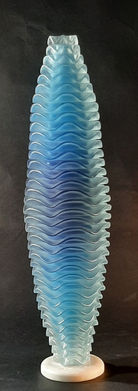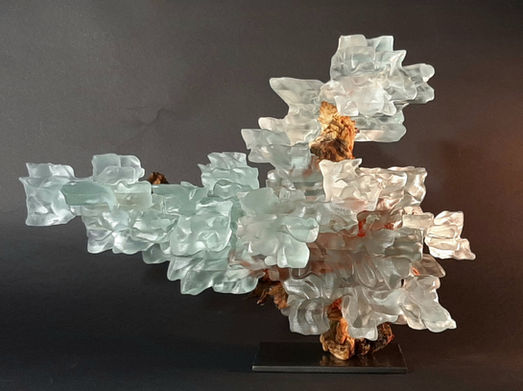GALERIE DE
L'ESTUAIRE

Yves TRUCCHI
The artist Jean-Philippe Hausey-Leplat lives and works in Normandy in the Lisieux region. He never left this region where he was born in 1950. His first graphic approach, after studying industrial designer, led him to an architectural firm. But quickly he accepted the proposal of a private owner and devoted himself to the restoration of a medieval castle, an activity to which he devoted more than twenty years. Through this work he will learn most of the crafts on his own. Very quickly he will also carry out artistic activities, drawing and sculpture which will lead him to the second passion of his life which is a sensitive and very personal sculpted content of the animal world.
Very interested in contemporary art, he became a regular at art venues in Paris and developed a personal technique of creation that combined his taste for the animal world and his great interest in contemporary forms of expression stemming from the Art Brut. For each chosen theme, it begins with the observation and study of the animal in its natural environment. He takes a lot of pictures, makes a lot of drawings. When he feels ready, he sets aside all these documentations and first achieves a general silhouette by building a metal structure that will bring the form and ensure the solidity of the room. Then begins a long work of creation, in plaster, by successive contributions of material. This is the long and dense part to obtain the rendering of the power and the attitude of the animal.
Then the sculpture will be dressed in canvases from used farm bags and those he can collect from all sources. His work, very precise, however, does not proceed from any direct measurement. It is through the preliminary study, the drawings he made, the photos, that he achieves a sufficient tactile knowledge of the animals presented. Then his work is a mixture of memory and sensitivity. The subjects he deals with, farm animals, pets, wild animals are always chosen for the muscular power they possess, which the artist's personal process captures in a striking way. Often he uses the graphic traces that exist on the canvas used. The pieces of canvas are joined together and sewn together, thus giving effects of strong and unexpected contrasts. Most often a single subject, the animals are also presented in pairs or sometimes in groups.
His great sensitivity, his precise knowledge of animal anatomy, of which the modeling of his sculptures testifies, make us penetrate effortlessly into the primitive and very contemporary world of his work. A kind of communication magic is established, similar to that of African masks, which deliver messages of intense emotion. His work quickly met with great success in France as well as in many other countries of the world.









